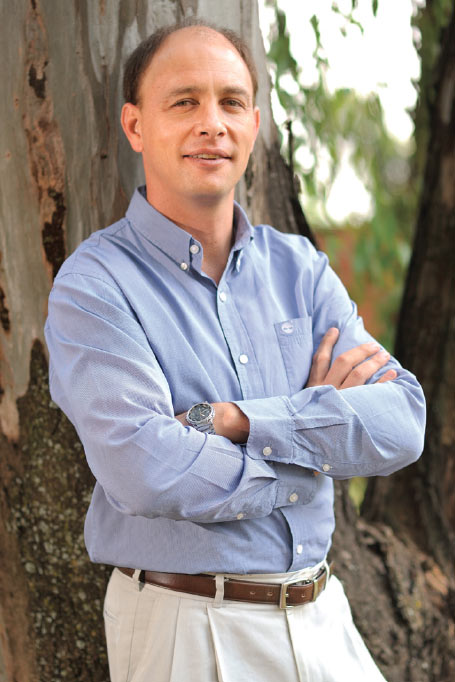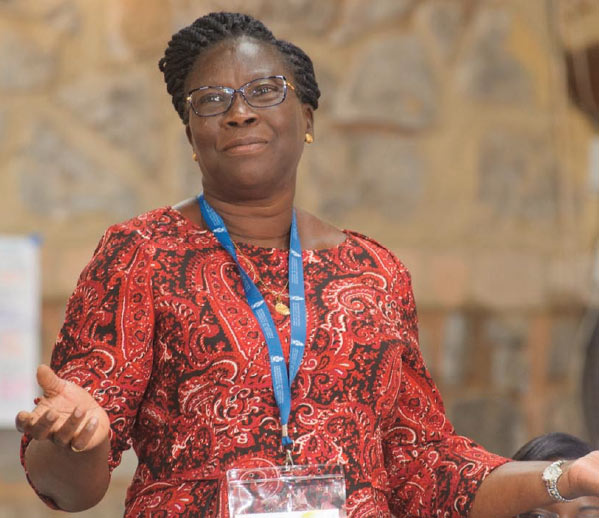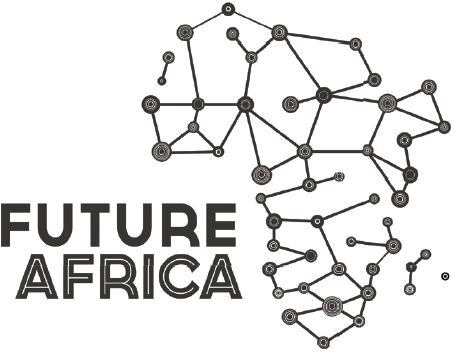 Professor Bernard Slippers leads the Future Africa project
Professor Bernard Slippers leads the Future Africa project
 Dr IkeOluwao Oyeneye Ayayi, an ASLP fellow from Nigeria
Dr IkeOluwao Oyeneye Ayayi, an ASLP fellow from Nigeria Dr Darshana Morar, Faculty of Veterinary Science, participant in TYRLP 2015
Dr Darshana Morar, Faculty of Veterinary Science, participant in TYRLP 2015
Professor Bernard Slippers writes that wicked challenges such as poverty, food security, climate change, biodiversity loss and development require the integration of perspectives across disciplines, scales and sectors to understand, let alone address, them.
The United Nations Sustainable Development Goals and African Union Agenda 2063 strategic plan speak to these wicked challenges facing society. They also represent a clarion call to research communities around the world to reconsider how we contribute to the well-being of society. In an age where knowledge is produced at a scale and rate that was unimaginable even a few decades ago, it is an indictment that the world has moved backwards with regards to many of these issues in recent times.
In recognition of these challenges, a new approach to science is emerging. Firstly, convergence science is bringing together different fields of study, allowing for the development of integrated approaches for understanding systems, and opening new pathways and opportunities for providing solutions to problems. Secondly, there is a growing call for such endeavours to be more deeply connected with the society that science is intended to serve, from inception and design, to the ‘ownership’ and use – what is referred to as transdisciplinary approaches to knowledge production.
To embrace this change, there is an urgent need to develop a new generation of scholars who are equipped to be leaders in addressing the grand challenges we face in Africa through their research and engagement.
“Searching for solutions (to today’s global challenges) requires that the scientific community operate in fundamentally new ways... Developing effective solutions requires converging approaches, such as the integration of knowledge from the life, physical, social, and economic sciences and engineering… Research-performing and training institutions, such as universities and research institutes, have critical roles to play... it is essential that they develop appropriate training programs and help stimulate multidisciplinary international collaborations.”
The University of Pretoria has established the Future Africa initiative to foster a new generation of science leaders, and to provide a link for them to research networks across the continent and the world. Future Africa provides a platform where scientists from different fields can meet, work together, exchange ideas and develop new research projects that are specifically aimed at addressing the challenges that constrain change towards a prosperous, equitable and sustainable future for Africa.
As one of Africa’s leading research universities, the University is well placed to develop the future leaders of science in Africa, with programmes that target high-profile African scholars and scholars from further afield, postdoctoral fellows and postgraduate students.
The Africa Science Leadership Programme (ASLP) aims to grow excellent mid-career African academics in the areas of collective leadership, team and research development and science-society engagement, with the intention of enabling them to solve the complex issues facing both Africa and the global community.
Two comments from participants at the first ASLP workshop illustrate the value of the programme to young researchers:
“I am delighted to have discovered this network of people. I did not expect the diversity and instant connection we had as Africans and the shared heart in thinking about solutions.”
“I have always had ideas about things I want to do beyond my academic discipline, but the Africa Science Leadership Programme was the first time I have had a platform to explore, describe and discuss them with a diverse group of people.”
Similar to the Africa-wide ASLP, the institution-specific Tuks Young Research Leader Programme (TYRLP) is an initiative at the University of Pretoria that targets early career academics. The programme aims to support young academics in the areas of thought leadership, team development, engagement and collaboration. A direct benefit to individual researchers is the community within the University that supports like-minded young researchers in proactively contributing to the research identity of UP. Several of these young academics are featured in this Review.
